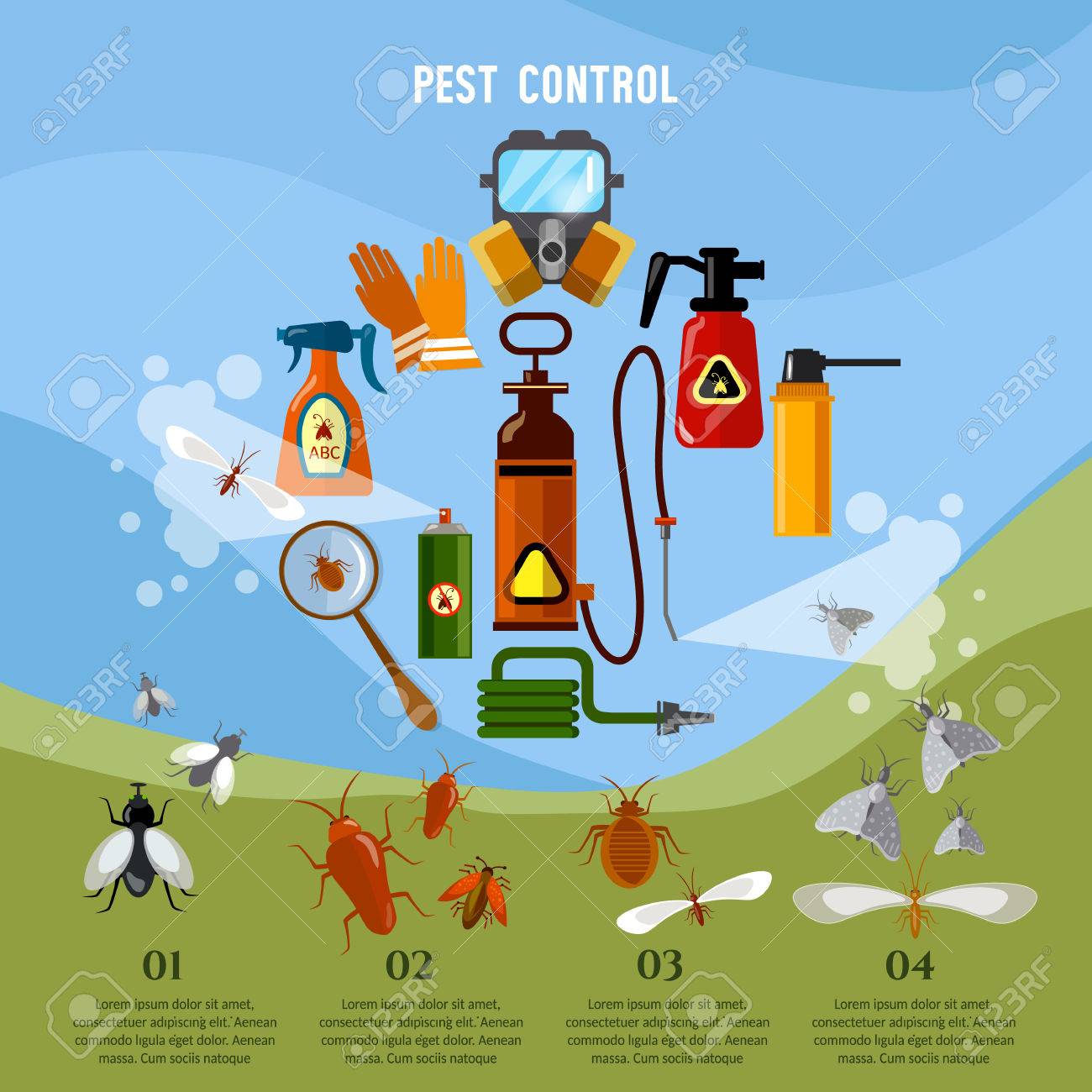Unveiling The Techniques Employed By Pest Control Specialists Beyond The Use Of Sprays
Unveiling The Techniques Employed By Pest Control Specialists Beyond The Use Of Sprays
Blog Article
Author-Damgaard Stewart
Are you tired of counting entirely on sprays to take care of insects in your house or office? While sprays can work, pest control experts have actually developed advanced strategies that exceed merely splashing chemicals.
These techniques not only give much more reliable and lasting options, yet also concentrate on minimizing the use of harmful pesticides. By discovering these innovative methods, you will certainly find a whole brand-new world of parasite control methods that are not only efficient, yet additionally eco-friendly.
So, are you ready to take your pest control game to the next level?
Integrated Pest Management (IPM)
If you're trying to find an efficient and environmentally-friendly strategy to pest control, Integrated Parasite Monitoring (IPM) is the remedy you require. IPM focuses on long-term avoidance and monitoring of bugs, instead of simply counting on chemicals. This method takes into consideration the specific needs and behaviors of parasites, as well as the surrounding setting.
By utilizing a combination of methods such as organic control, environment control, and targeted pesticide usage, IPM aims to reduce the reliance on chemical treatments and decrease injury to non-target microorganisms.
One vital aspect of IPM is keeping track of and determining parasites properly. This entails routinely examining and evaluating the pest population, along with identifying the particular species present. By comprehending the biology and habits of bugs, insect control experts can establish targeted approaches to interrupt their life cycle and decrease their numbers.
One more crucial aspect of IPM is using non-chemical control approaches whenever feasible. This can consist of physical barriers, such as setting up screens or securing splits and openings, to stop pests from entering buildings. In addition, social practices, like proper cleanliness and waste management, can help eliminate insect food sources and reproducing grounds.
When pesticides are essential, IPM focuses on using them judiciously and as a last resort. This implies picking the least poisonous and most effective alternative, applying it specifically and only to impacted areas, and following all safety and security standards. By reducing pesticide usage, IPM lowers the possible risks to human wellness and the setting.
Biological Control
To additionally improve the efficiency of Integrated Bug Administration (IPM), the next subtopic we'll explore is the method of biological control. This method utilizes all-natural predators or parasites to manage insects.
Right here are 4 crucial elements of biological control:.
1. Introduction of all-natural enemies: In this method, useful insects or organisms are presented to the area ravaged with insects. These all-natural opponents take advantage of the insects, aiding to minimize their populace.
2. Conservation of all-natural opponents: Instead of presenting new microorganisms, this approach concentrates on creating an appropriate atmosphere for existing useful pests. This can be achieved through offering food, sanctuary, and water resources.
3. Enhancement: Here, the variety of all-natural opponents is enhanced artificially by breeding and releasing them right into the ravaged location. This aids to rapidly minimize the pest populace.
4. https://howtoremoveyourscentfromr51739.dailyblogzz.com/26259711/5-indications-you-need-to-call-bed-insect-parasite-control-specialists -pull method: This strategy combines repellents and attractants to adjust the behavior of bugs. Repellents press bugs far from crops, while attractants entice them in the direction of catch crops or locations where they can be easily regulated.
Habitat Adjustment
Habitat adjustment plays an important function in parasite control by altering the atmosphere to dissuade bug infestations. By making changes to the physical qualities of a room, you can create an inhospitable atmosphere for bugs, making it harder for them to make it through and thrive.
One usual technique of habitat modification is removing or minimizing potential food resources for parasites. This can consist of appropriate waste administration, securing containers, and cleaning up food crumbs.
Additionally, eliminating or reducing locations of standing water can aid regulate insects like insects.
Altering the landscape by cutting trees and shrubs far from structures can likewise protect against parasites from accessing your residential or commercial property.
https://www.bobvila.com/articles/how-to-get-rid-of-yellow-jackets/ .
So there you have it - the sophisticated strategies used by bug control experts surpass simply splashing chemicals. Integrated Pest Monitoring (IPM) integrates various approaches to successfully regulate bugs, while biological control uses all-natural enemies to maintain insect populaces in check.
https://howtoremovesmellfromrat72615.blogdanica.com/25757353/expert-insights-exactly-how-insect-control-professionals-tackle-common-parasite-problems plays an important role in preventing insect invasions.
Did you recognize that according to a study, executing IPM strategies decreased pesticide usage by approximately 71%? This not only safeguards our wellness and the atmosphere however likewise conserves cash in the future.
